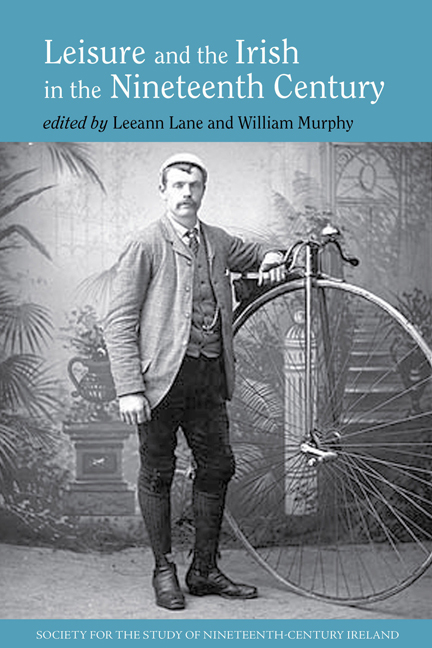Introduction
Summary
When we consider the situation of the human mind in nature, its limited plasticity and few channels of communication with the outer world, we need not wonder that we grope for light, or that we find incoherence and instability in the human systems of ideas. The wonder rather is that we have done so well, that in the chaos of sensations and passions that fills the mind we have found any leisure for self-concentration and reflection, and have succeeded in gathering in even a light harvest of experience from our distracted labours.
Peter Borsay begins A history of leisure: the British experience since 1500 by noting that most histories of leisure ‘wisely eschew any concerted attempt to define’ the subject and instead assume ‘a common-sense meaning shared between writer and reader’. In this volume, harvested from work presented to the annual conference of the Society for the Study of Nineteenth-Century Ireland held at the Mater Dei Institute of Education, Dublin City University, in 2012, twelve scholars contribute chapters that reflect on a variety of manifestations of leisure. If most have taken the route described as wise by Borsay, then collectively they have addressed various issues that the study of leisure opens up to us as they seek to pursue, for different groups and from different points of view, our curiosity as to what people did with time that was their own, why they did what they did, and what this means.
In doing so, they remind us that the study of leisure can contribute to our understanding of what we used to call societies and classes, and now more often call cultures, through assessing how time was structured for individuals and groups, by seeking to understand how those people spent their ‘free’ time, by pointing to the factors that facilitated or inhibited their choices, and by examining the meaning and values the leisured, and others, assigned to those choices. It throws light on the identities people created, the relationships they forged, the ideologies they encountered and promoted, the spaces they occupied, the technologies they employed, and, it is to be hoped, the fun they found through their leisure.
- Type
- Chapter
- Information
- Leisure and the Irish in the Nineteenth Century , pp. 1 - 20Publisher: Liverpool University PressPrint publication year: 2016



